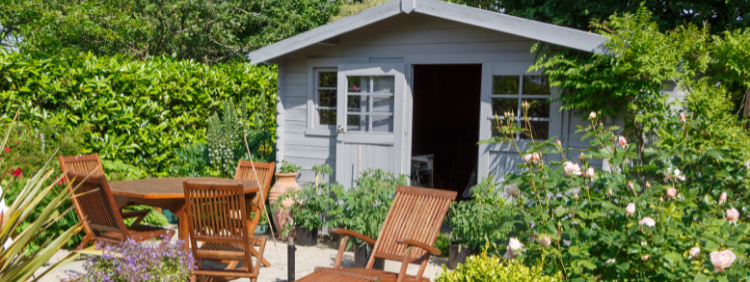
Mice are resourceful little critters. They manage to make homes and forage for food in some of the most protected places, including homes and office buildings. While mice removal in Cambridge represents an excellent way to correct an infestation, it is better for property owners if they can prevent settlements, to begin with.
One of the most vulnerable spaces on a residential property is the shed. People do not enter their sheds every day, and in some instances, a shed can be left without a human presence for an entire season. Therefore, mice feel comfortable when they find their way inside these buildings. Thankfully, there are several ways to protect your property against a potential infestation.
1. Seal Entry Points
A mouse does not need much room to enter a property. Some experts report that mice only need an opening the diameter of an average pen or pencil. Many people find it hard to believe that mice can fit through such tiny openings, but their skeletal systems and bodies are more flexible than the average person or animal.
If you know that your shed is clear of animals, then you will want to check the entire building for any openings. Check around the interior and exterior. You want to look for any gaps in the foundation or cracks in the structure. You should also check the roofline for any openings. Because of the small size of potential openings, it might be beneficial to contact an animal control specialist. Professionals will have more experience finding cracks and gaps.
However, while you want to seal any openings, you only want to do this when you know there are no animals inside the shed. If any mice are inside the building, sealing the exterior will only trap them inside, leading to other problems.
2. Remove Food and Water Sources
Many people like to store seeds, trash bins, and animal food in sheds. While storing anything in a shed is Ok, especially when the building is sealed correctly, there are certain precautions to take when storing potential food sources. You will want to ensure that any seed or pet food is stored in an airtight container, the same with trash. Airtight containers prevent rodents from sniffing out their next meal.
Additionally, if you have plumbing in your shed or near it, make sure it is in good working order and free of leaks. You will also want to remove any pet water dishes from the area when your pets are finished drinking. Like all animals, mice need fresh water to survive. If you leave water bowls outside or in a shed, you are providing the water to all living things with access to the area.
3. Keep the Area Clean and Uncluttered
Many people struggle to keep their sheds clean. The outbuilding becomes a place for junk collection. Storing miscellaneous boxes and other clutter is another way to provide shelter for wildlife. Mice, other rodents, bugs, etc., love a cluttered space. Clutter provides plenty of hiding places and nesting materials.
A clean and organized shed is less likely to attract critters. If you do need to store miscellaneous materials in your shed, use hard plastic containers with lids. Check the containers or bins frequently for chew marks. A clean shed also makes it easier to spot when something is off. You will notice mice droppings, chewed wood shavings, or other signs because the floor and walls are clean.
Sheds are vulnerable to wildlife. If you believe you have mice in your shed, do not hesitate to contact Truly Nolen in Cambridge and schedule a property assessment.
